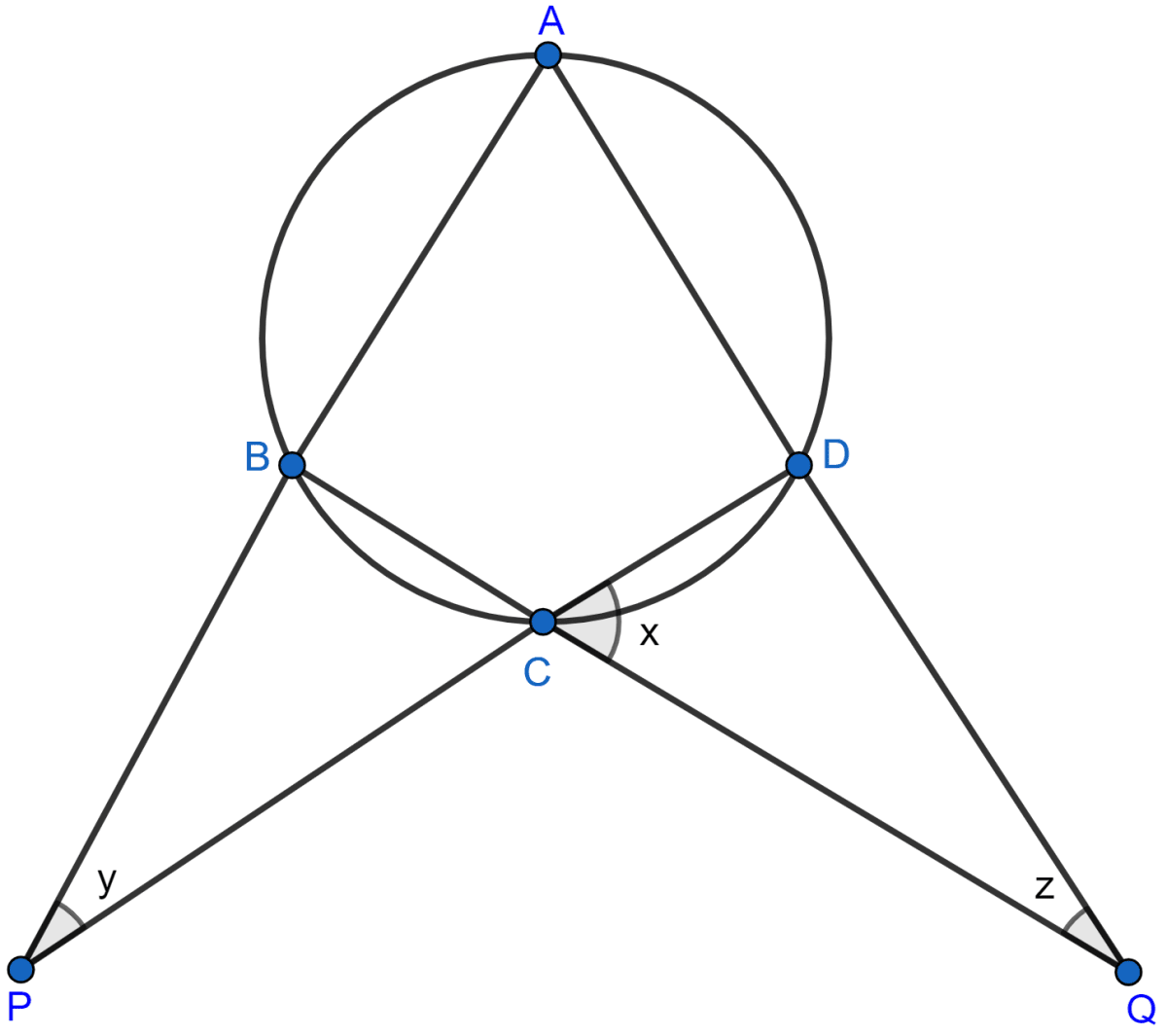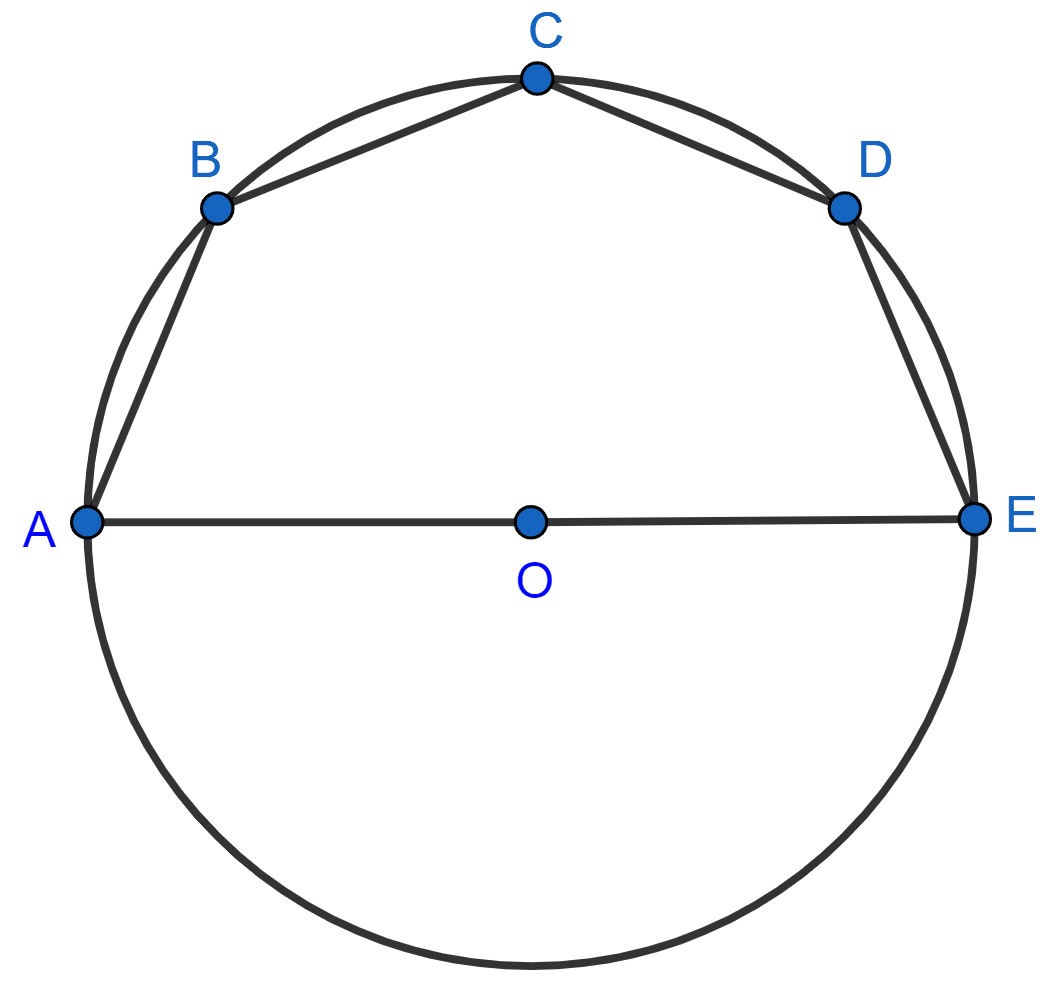Mathematics
In the given figure, AC is the diameter of the circle with center O. CD and BE are parallel. Angle ∠AOB = 80° and ∠ACE = 10°. Calculate :
(i) Angle BEC,
(ii) Angle BCD,
(iii) Angle CED.

Circles
19 Likes
Answer
(i) From figure,
⇒ ∠BOC + ∠BOA = 180° [As AOC is a straight line.]
⇒ ∠BOC + 80° = 180°
⇒ ∠BOC = 180° - 80° = 100°.
We know that,
Angle at the centre is double the angle at the circumference subtended by the same chord.
⇒ ∠BOC = 2∠BEC
⇒ ∠BEC = ∠BOC = = 50°.
Hence, ∠BEC = 50°.
(ii) Given,
DC || EB
∴ ∠DCE = ∠BEC = 50° [Alternate angles are equal]
We know that,
Angle at the centre is double the angle at the circumference subtended by the same chord.
⇒ ∠AOB = 2∠ACB
⇒ ∠ACB = ∠AOB = = 40°.
From figure,
∠BCD = ∠ACB + ∠ACE + ∠DCE = 40° + 10° + 50° = 100°.
Hence, ∠BCD = 100°.
(iii) As sum of opposite angles of cyclic quadrilateral = 180°.
⇒ ∠BED + ∠BCD = 180°
⇒ ∠BED = 180° - ∠BCD = 180° - 100° = 80°.
From figure,
⇒ ∠BED = ∠BEC + ∠CED
⇒ 80° = 50° + ∠CED
⇒ ∠CED = 80° - 50° = 30°.
Hence, ∠CED = 30°.
Answered By
14 Likes
Related Questions
In the given figure, AB is a diameter of the circle with center O. DO is parallel to CB and ∠DCB = 120°. Calculate :
(i) ∠DAB,
(ii) ∠DBA,
(iii) ∠DBC,
(iv) ∠ADC.
Also, show that the △AOD is an equilateral triangle.

Calculate the angles x, y and z if :

In the given figure, AE is the diameter of the circle. Write down the numerical value of ∠ABC + ∠CDE. Give reasons for your answer.

In the given figure, AOC is a diameter and AC is parallel to ED. If ∠CBE = 64°, calculate ∠DEC.
